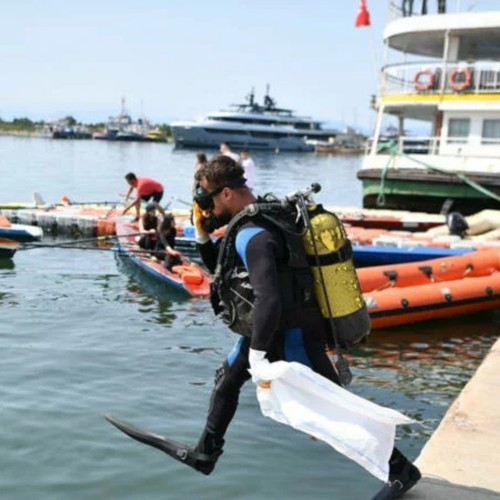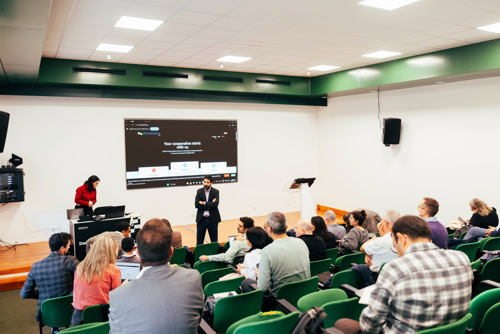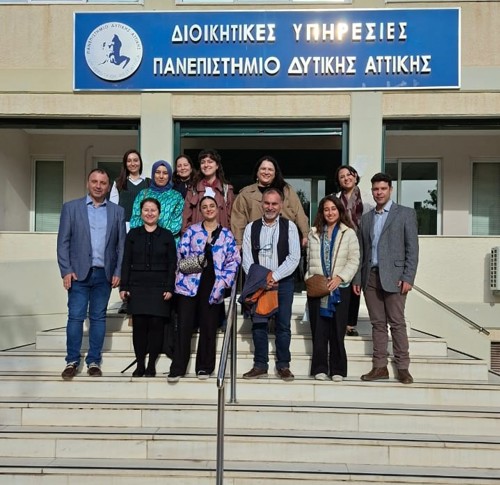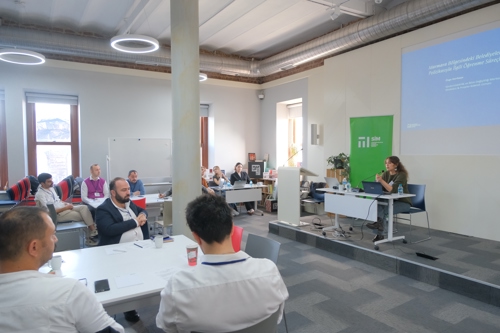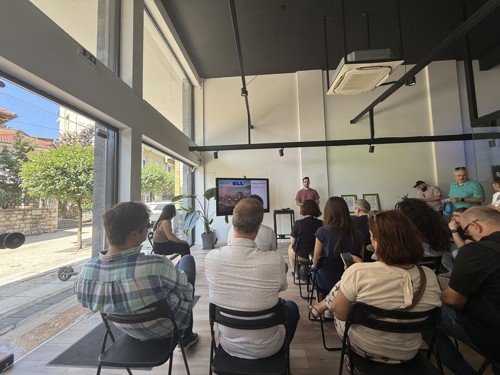MMU Took Part in 2020 Malaysia Urban Forum
Within the forum of which the UN-Habitat and Marmara Urban Forum (MARUF), organized by Marmara Municipalities Union (MMU), were among the partners, sustainable urbanism was discussed under the sub-themes of “Inclusive Urbanization”, “Technology and Innovation for Sustainability”, “Urban Resilience and Low Carbon”, “Culture and Creative Cities” and “Financing Sustainability”.
Take Action for a Sustainable Future!
In the speeches that were given at the opening ceremony of MUF2020, the global problems that have deepened with the COVID-19 outbreak were reminded, and the city stakeholders were called to take action. UN-Habitat Executive Director Maimunah Mohd Sharif stated that “More than ever, we are reminded of the need for solidarity and cooperation, peace and harmonious resolution of conflict, future thinking and human ingenuity. At this time when the world and people expect more from us, I urge all participants of MUF to be bold and visionary in leading solutions to address today's crises." Muhyuddin Yassin, the Prime Minister of Malaysia also delivered an opening speech and said “COVID-19 challenges us day by day and urges us a wake-up call. Every country must reassess every step taken to date and do more.”
Building Sustainable Cities for All
In addition to the physically held sessions during MUF2020, important points such as creating an information infrastructure, raising awareness, sustainable and crisis-resilient city construction and innovative solutions to problems were emphasized in the virtual rooms. MMU held an online session titled "Making Urban Spaces Inclusive for Older People" at the MUF2020. At the session moderated by the President and Co-founder of the 65+ Elder Rights Association Gülüstü Salur, Lecturer of Architecture at Istanbul Technical University Assoc. Prof. Göksenin İnalhan, Co-founder and Director of the Center for Spatial Justice Yaşar Adanalı, and Vice President of 65+ Elderly Rights Association and Journalist Ferhat Boratav were present as speakers.
Göksenin İnalhan emphasized that in 2050, the population of people over 60 will be twice that of today. She underlined that this demographic change will have important implications for development. “Designing for older people or people getting older requires an understanding of how aging process can affect the way which older person receives, interprets and negotiates the environment, but also demands an understanding of what it means to grow older in society. Age-friendly environments are defined by being free from physical and social barriers, and are supported by policies, systems, services, products, and technologies that promote health, and build and maintain physical and mental capacity across the life-course, and enable people, even when experiencing capacity loss, to continue to do the things they value.”
Speaking about the rapid and unplanned transformation of cities, Yaşar Adanalı emphasized the lack of an aging dimension within spatial studies and the lack of spatial dimension within aging studies. Adanalı, whose topic was about uncalculated works and displacement pressure, pointed out that “Displacement pressure is not about being directly or forcefully displaced. It is about the rapid change of our surrounding environment that we grow up and the pressure we feel about it. This pressure is one factor that we have to be aware of when we get into urban transformation projects and policies. One of the solutions that we have to put for ourselves is thinking of neighborhoods, urban areas with care. To make cities inclusive in terms of age after corona crisis, it is important to consider care as ecology. I define ecology of care as a whole of care-centric relations among neighbors of different ages, capacities and abilities; between humans and other living beings; and between built and natural environment. We have to ask ourselves this question: Are our urban policies aiming for the ecology of care or, are they causing more displacement pressure?” Referring to the benefits of establishing a coalition between non-governmental organizations, academicians, and urban planning employees, Adanalı underlined the importance of active participation in city planning.
Ferhat Boratav touched upon the issues of experiencing old age and the responsibilities of civil society organizations in this regard. Stating that aging is actually a personal experience that we get first from our family and then from ourselves, Boratav said that “In the past, the elderly in our country enjoyed being old because they were members of a society that was young and capable of taking care of them. Now that has changed. Our society is aging rapidly. We do not have much time left, and so we need to realize that aging is a right. If we cannot put forward that this situation is an issue of rights, we will not be able to seek answers to the problems of our rapidly aging society. There is not much work being done in Turkey and the world regarding the aging issue. Our duty, including non-governmental organizations, is to advocate developing institutions and legal systems that support elderly rights. The best assistants of non-governmental organizations on this issue are local authorities such as city councils and comprehensive work should be done with these authorities.”









